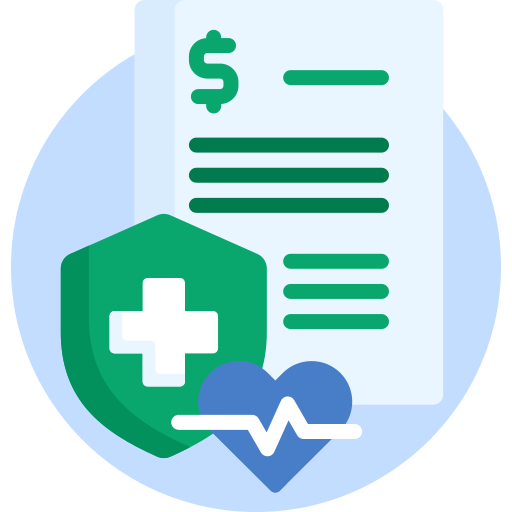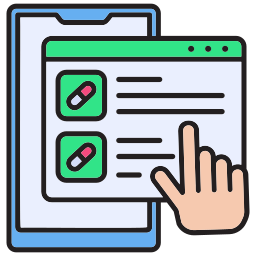Epic integration has become an important part of modern healthcare. By connecting different systems, it ensures providers can access and share essential patient information without hurdles. This kind of connectivity gives healthcare professionals the data when they need it, enabling more informed and timely decisions.
Whether it’s eliminating unnecessary tests, improving care coordination, or easing administrative workloads, Integration with Epic simplifies the day-to-day operations of healthcare teams. It clears the way for smoother workflows, allowing staff to focus more on patient care and less on navigating disconnected systems.
Epic integration is about making healthcare more effective and patient-centered. It allows providers to work collaboratively, ensuring better outcomes and improving the overall experience for patients and caregivers alike. This integration helps healthcare teams deliver care with confidence and precision, putting patients’ needs front and center. Let’s learn more about integration with Epic in detail:

What Topics Will Be Covered?
✅ Current State of EHR Integration: An overview of existing challenges and hidden costs associated with EHR systems.
✅ Introduction to HealthConnect CoPilot: A deep dive into this innovative EHR solution designed to enhance integration processes.
✅ Fast Track to Efficiency: Learn how to integrate your solution with Epic in just 24 hours.
✅ Real-World Impact: Understand the data-driven benefits of implementing HealthConnect CoPilot in your organization
Different ways to integrate with Epic
1️⃣ Single Sign-On (SSO) – Standalone
Implementing Single Sign-On (SSO) with Epic’s SMART on FHIR and OAuth 2.0 methods offers a secure and streamlined login experience. Users can access your application using their existing Epic credentials, simplifying authentication and reducing barriers to entry. This approach enhances user satisfaction by minimizing the need for multiple logins while maintaining strong security measures.
Related Read: Decoding SMART on FHIR for Healthcare Interoperability
2️⃣ Server-Based Integration
Server-based integration connects your application with Epic’s server environment, enabling real-time data exchange such as clinical records and scheduling information. Leveraging industry-standard APIs like HL7 and FHIR alongside Epic’s public APIs ensures data transfer remains secure and compliant. This method is particularly effective for environments with high transaction volumes, such as hospitals and extensive healthcare networks.

3️⃣ Embedded Integration
Embedding your application within Epic’s interface through Hyperspace or Hyperdrive frameworks creates a unified user experience. This integration allows healthcare professionals to interact with your app without leaving the Epic environment, eliminating unnecessary switching. The result is a more detailed workflow that saves time and enhances the user’s productivity.
Key Benefits of EHR Integration
✅ Supporting Interoperability
Integration with Epic allows healthcare systems to communicate with each other more effectively. Whether it’s exchanging patient records or sharing diagnostic reports, interoperability ensures that vital information is available where it’s needed most, reducing delays and miscommunication.
Related Read: The Interoperability Challenge in Healthcare

✅ Boosting Remote Patient Monitoring (RPM)
Epic supports RPM tools through integration that lets providers monitor patients’ health metrics in real-time. From wearable devices tracking vitals to patient-reported outcomes, this capability helps manage chronic conditions and delivers timely interventions—all without requiring frequent in-person visits.
Related Read: Patient Monitoring: A Guide for Healthcare Providers
✅ Enabling Mobility for Providers and Patients
Integration with Epic offers mobile-friendly access to patient records and tools, allowing providers to work efficiently in the clinic, at the bedside, or attending to emergencies offsite. For patients, mobile access to their health data fosters active involvement in their care journey.
✅ Increasing Efficiency Across Systems
A well-integrated Epic system reduces administrative burdens by automating routine tasks like appointment scheduling, billing, and data entry. This frees up time for clinicians and staff to focus more on patient care.
✅ Driving Patient-Centered Care
By making patient information readily accessible, Epic integration enables healthcare providers to deliver care that aligns more closely with individual needs and preferences. Personalized treatment plans become more achievable, increasing satisfaction and health outcomes.
Navigating Security and Compliance Requirements
When it comes to patient data, there's no room for error. Integration with Epic means navigating a complex maze of regulations like HIPAA, GDPR, and the Cures Act. It's like being a detective, uncovering any vulnerabilities in your current system. By putting strong security measures in place, like encryption and strict access controls, you're building a fortress around sensitive patient information.
Partnering with your IT team and legal experts is key to staying compliant and avoiding costly penalties. Remember, data security isn't just about checking boxes; it's about earning your patient's trust and protecting their privacy.
Related Read: Understanding Cures Act Compliance: A Modern Healthcare Imperative
Breaking the Myth: Cost and Time of Integration
Epic integration often has a reputation for being a drawn-out, costly process, making many organizations hesitate to take the leap. While it’s true that EHR systems like Epic require careful planning, the idea that integration will inevitably drain your budget and eat up months of time isn’t the full story. With the right strategies, integrating Epic can be efficient and affordable without compromising the quality of your healthcare services.
One way to cut costs and save time is by opting for incremental integration. Instead of attempting a full-scale rollout across all departments at once, start with high-priority areas. This phased approach reduces the financial burden and allows teams to adjust and learn as the system grows. Using proven frameworks and pre-built integration modules can also trim implementation timelines while maintaining functionality.
Partnering with experienced Epic consultants or IT service providers who know the system inside out is another effective way to streamline the process. Their expertise can help identify potential roadblocks early, ensuring that the integration stays on schedule and within budget. Remember, the key is in planning smarter—not spending more or rushing unnecessarily. With thoughtful preparation, integration with Epic can be a practical and rewarding investment.
How HealthConnect CoPilot Can Help You With Epic Integration?
Integrating Epic can often feel like piecing together a complex puzzle. HealthConnect CoPilot simplifies this challenge with its “Ready Recipes”—pre-configured solutions designed to streamline the connection process. These solutions accelerate integration while avoiding the pitfalls of costly or restrictive platforms, acting as a reliable guide to ensure every piece fits perfectly without unnecessary trial and error.
Partnering with HealthConnect CoPilot, an Epic-approved vendor, means leveraging deep expertise in Epic integration. HealthConnect Co-Pilot aligns workflows, patient data, and operations seamlessly. With an emphasis on security, scalability, and performance, the integration journey becomes less about obstacles and more about reaching operational efficiency, all while protecting sensitive patient data with HIPAA-compliant measures.
We provide IT solutions; that ensure you maintain full ownership of your integration project. This approach guarantees flexibility, allowing you to adapt and scale your solution as your organization grows. With transparent processes and expert support, it ensures your Integration with Epic is successful and tailored to meet your long-term goals. Ready to transform your operations? Let’s make it happen together.
HealthConnect CoPilot enabled us to access real-time patient health data through integration with Apple HealthKit, enhancing care delivery while maintaining HIPAA compliance. This led to personalized care and improved outcomes for patients.

AI-enhanced Obstetrics Clinical Decision Support Platform
HealthConnect CoPilot's integration with Epic's Hyperspace has transformed our workflow. Automated post-delivery examinations and HL7 protocol use ensure accurate updates to Epic. Their expertise empowers informed decision-making in childbirth

Top Provider for Customized Healthcare Solutions
HealthConnect CoPilot's helped us to integrate with leading tracking devices such as Apple Watches and Fitbit. This integration enables effortless syncing of health data, providing users with real-time insights displayed directly on our flagship products: smart mirrors and digital calendars.

A Provider of Customizable Display Solutions
Post a comment Cancel reply
Related Posts
FHIR Versions: The Past, The Present & The Future
The Fast Healthcare Interoperability Resources (FHIR) standard has revolutionized healthcare data exchange, enabling seamless interoperability…
What Are CDS Hooks? A Simple Guide for Healthcare Providers
CDS Hooks are changing how clinical decision support (CDS) works inside EHRs, bringing real-time, context-aware…
The Challenges and Benefits of EHR Integration for Health Tech Companies
As digital health companies continue to innovate and develop cutting-edge healthcare solutions, one of the…
Streamlining Behavioral Healthcare with Epic EHR Integration
Behavioral healthcare providers are facing an increasing demand for streamlined systems that can integrate multiple…
How A Maternal Health Startup Is Revolutionizing Charge Capture in Epic?
Helping Moms Shouldn’t Involve Wasting Time or Resources Maternal health startups are doing some of…
EHR Integration for Diabetes Management: A Scalable Solution for Modern Healthcare Platforms
Managing chronic diseases like diabetes requires consistent care, personalized treatment, and uninterrupted access to patient…









